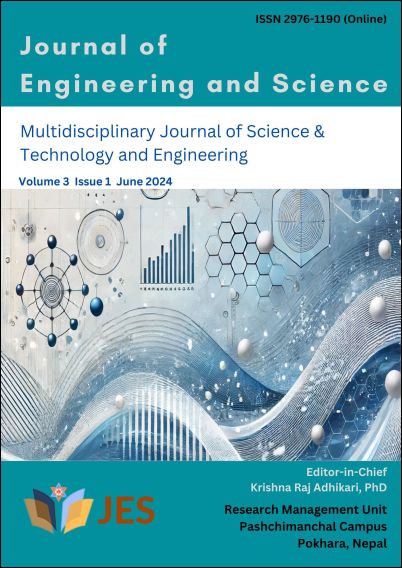Investigation of Brewing Water Hardness and Alkalinity, and Ethanol Content in Nepalese Home-Brewed Alcoholic Beverages in a Locale of Pokhara Countryside
DOI:
https://doi.org/10.3126/jes2.v3i2.72186Keywords:
Home brewed alcoholic beverages, Ethanol content, Brewing water alkalinity and hardness, Fermentation, Non-distilled and distilled alcoholic beverageAbstract
The current study determined brewing water hardness, alkalinity, and ethanol content in non-distilled and distilled home-brewed alcoholic beverage (HBAB) samples available in the local households of Pokhara, Nepal countryside. The HBAB samples selected for the ethanol content determination were (i) non-distilled home-brewed alcoholic beverages bhate jand & chhyang prepared by fermentation of a mashed mixture of glutinous steamed rice and starter culture media of marcha (yeasts) and tongba prepared by fermentation of a mashed mixture of steamed finger millet and marcha (yeasts) starter, and (ii) distilled HBAB viz. local raksi prepared by fermentation of a mashed mixture of millet grains and yeasts followed by the subsequent distillation in different lots in household distillery plants. The study revealed desirable hardness but excess alkalinity factors in the brewing water samples. The non-distilled HBABs were found to have less than half the ethanol content in distilled HBABs. Among the non-distilled HBABs, steamed rice fermented chhyang had higher ethanol concentration than glutinous rice fermented bhate jand and finger millet fermented tongba beverages. The standard guidelines for brewing water hardness and alkalinity and standardization of ethanol content are essentially required for branding and commercialization and restricted consumption of the Nepalese HBABs. This study provides useful data for national economic and health plans for these purposes.
Downloads
Downloads
Published
How to Cite
Issue
Section
License
Copyright (c) 2024 The Author(s)

This work is licensed under a Creative Commons Attribution 4.0 International License.
CC BY: This license allows reusers to distribute, remix, adapt, and build upon the material in any medium or format, so long as attribution is given to the creator. The license allows for commercial use.




